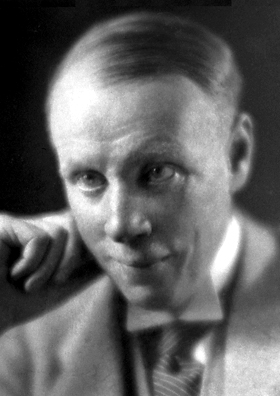
Harry Sinclair Lewis was an American novelist, short-story writer, and playwright. In 1930, he became the first author from the United States to receive the Nobel Prize in Literature, which was awarded "for his vigorous and graphic art of description and his ability to create, with wit and humor, new types of characters." Lewis wrote six popular novels: Main Street (1920), Babbitt (1922), Arrowsmith (1925), Elmer Gantry (1927), Dodsworth (1929), and It Can't Happen Here (1935).

Sir Clive Marles Sinclair was an English entrepreneur and inventor, best known for being a pioneer in the computing industry and also as the founder of several companies that developed consumer electronics in the 1970s and early 1980s.

Dodsworth is a satirical novel by American writer Sinclair Lewis, first published by Harcourt Brace & Company on March 14, 1929. Its subject, the differences between US and European intellect, manners, and morals, is one that frequently appears in the works of Henry James. In 1936 it was made into a movie, Dodsworth, which received seven Academy Award nominations and has been regarded as historically significant by the Library of Congress.

Elmer Gantry is a satirical novel written by Sinclair Lewis in 1926 that presents aspects of the religious activity of the United States in fundamentalist and evangelistic circles and the attitudes of the 1920s public toward it. Reverend Dr. Elmer Gantry, the protagonist, is attracted by drinking, making easy money and chasing women. After various forays into smaller, fringe churches, he becomes a major moral and political force in the Methodist Church despite his hypocrisy and serial sexual indiscretions.
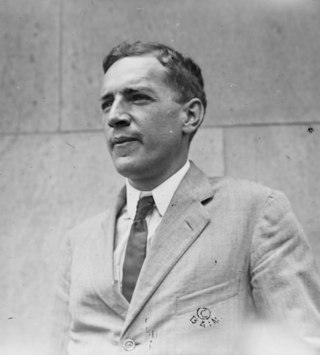
Upton Beall Sinclair Jr. was an American writer, muckraker, political activist and the 1934 Democratic Party nominee for governor of California. He wrote nearly 100 books and other works in several genres. Sinclair's work was well known and popular in the first half of the 20th century, and he won the Pulitzer Prize for Fiction in 1943.

Bethel is a town in Sussex County, Delaware, United States. According to 2010 Census Bureau figures, the population of the town is 171. It is part of the Salisbury, Maryland-Delaware Metropolitan Statistical Area.

It Can't Happen Here is a 1935 dystopian political novel by American author Sinclair Lewis. Set in the fictionalized version of 1930s United States, it follows an American politician, Berzelius "Buzz" Windrip, who quickly rises to power to become the country's first outright dictator and Doremus Jessup, a newspaper editor who sees Windrip's fascist policies for what they are ahead of time and who becomes Windrip's most ardent critic. The novel was adapted into a play by Lewis and John C. Moffitt in 1936.
This article contains information about the literary events and publications of 1885.
You don't know about me without you have read a book by the name of 'The Adventures of Tom Sawyer'; but that ain't no matter. That book was made by a Mr Mark Twain, and he told the truth, mainly.

Edmund Wilson Jr. was an American writer, literary critic and journalist. He is widely regarded as one of the most important literary critics of the 20th century. Wilson began his career as a journalist, writing for publications such as Vanity Fair and The New Yorker. He helped to edit The New Republic, served as chief book critic for The New Yorker, and was a frequent contributor to The New York Review of Books. Wilson was the author of more than twenty books, including Axel's Castle, Patriotic Gore, and a work of fiction, Memoirs of Hecate County. He was a friend of many notable figures of the time, including F. Scott Fitzgerald, Ernest Hemingway, and John Dos Passos. His scheme for a Library of America series of national classic works came to fruition through the efforts of Jason Epstein after Wilson's death. He was a two-time winner of the National Book Award and received the Presidential Medal of Freedom in 1964.

Babbitt (1922), by Sinclair Lewis, is a satirical novel about American culture and society that critiques the vacuity of middle class life and the social pressure toward conformity. The controversy provoked by Babbitt was influential in the decision to award the Nobel Prize in Literature to Lewis in 1930. The novel has been filmed twice, once as a silent in 1924 and remade as a talkie in 1934.

Arrowsmith is a novel by American author Sinclair Lewis, first published in 1925. It won the 1926 Pulitzer Prize. Lewis was greatly assisted in its preparation by science writer Paul de Kruif, who received 25% of the royalties on sales, although Lewis was listed as the sole author.

Main Street is a satirical novel written by Sinclair Lewis, and published in 1920. Satirizing small-town life, Main Street is perhaps Sinclair Lewis's most famous book and led in part to his eventual 1930 Nobel Prize for Literature.
Paul Henry de Kruif was an American microbiologist and writer. Publishing as Paul de Kruif, he is known for his 1926 book, Microbe Hunters. This book was not only a bestseller for a lengthy period after publication, but has remained high on lists of recommended reading for science and has been an inspiration for many aspiring physicians and scientists.

The Bethel Church is a historically-black Baptist megachurch in Jacksonville, Florida, in the United States. Founded in 1838, it is the city's oldest Baptist congregation. The attendance is 12,000 members. The senior pastor is Bishop Rudolph W. McKissick Jr. The historic church building is on the National Register of Historic Places.
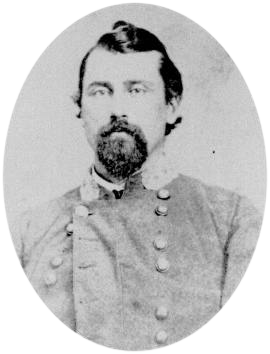
William Gaston Lewis was a Confederate general in the American Civil War.

Mary Craig Sinclair (1882–1961) was a writer and the wife of Upton Sinclair.
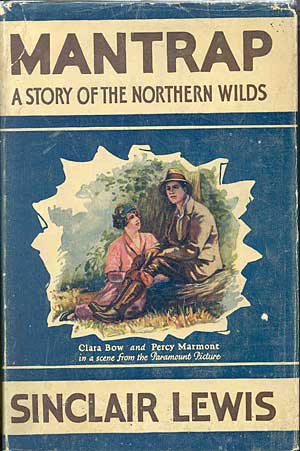
Mantrap is a 1926 novel by Sinclair Lewis. One of Lewis's two unsuccessful novels of the 1920s, the other being The Man Who Knew Coolidge. Mantrap is the story of New York lawyer Ralph Prescott's journey into the wilds of Saskatchewan, and of his adventures there. The novel spawned two separate film adaptations, Mantrap (1926), and Untamed (1940).
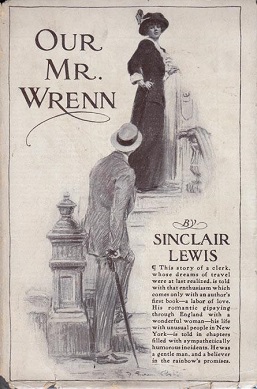
Our Mr. Wrenn: The Romantic Adventures of a Gentle Man is a 1914 novel by Sinclair Lewis and the first to be published under his real name.

The Man Who Knew Coolidge is a 1928 satirical novel by Sinclair Lewis. It features the return of several characters from Lewis' previous works, including George Babbitt and Elmer Gantry. Additionally, it sees a return to the familiar territory of Lewis' fictional American city of Zenith, in the state of Winnemac. Presented as six long, uninterrupted monologues by Lowell Schmaltz, a travelling salesman in office supplies, the eponymous first section was originally published in The American Mercury in 1927.
Edward Francis Murphy, SSJ was an American playwright, novelist, educator, and Catholic priest known for creating the "first Catholic best-seller", the novel The Scarlet Lily. He was also a close friend of Sinclair Lewis and introduced him to the Black community, inspiring his novel Kingsblood Royal.
















